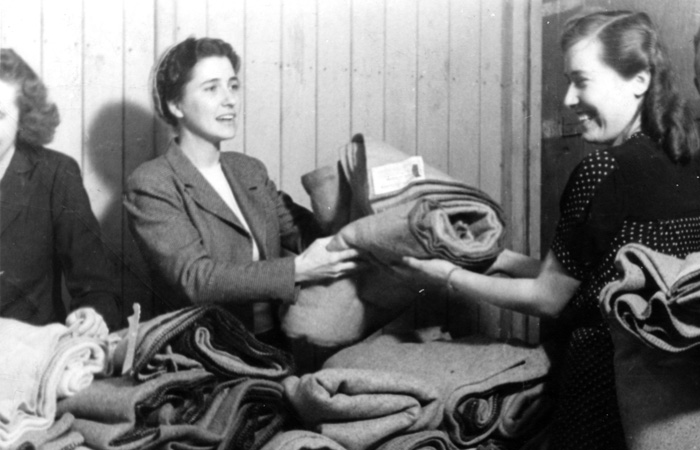Village News
MCC 100 Years

The Mennonite Central Committee (MCC) is turning one hundred in 2020 and Mennonite Heritage Village (MHV), together with MCC, is celebrating by looking back at the last century. The exhibit “MCC 100 Years” will open May 23, 2020 at MHV’s annual Spring Gala Fundraiser.
But we need your help! MHV is looking for artefacts that speak to the history of MCC that we can showcase in the exhibit. Perhaps you have an object from your time as an MCC worker overseas that you would like to loan for the exhibit and share your story with our community. Or perhaps you’ve been an MCC volunteer for years and have an object that shares your story of why you volunteer your time and expertise for MCC. We’d love to hear from you! If you have an artefact you would like to be considered for the exhibit, please call Andrea Dyck (Senior Curator) at 204-326-9661.
The exhibit will begin all the way back at the beginning in 1920, when MCC was formed in response to the crisis experienced by Mennonites in the Soviet Union (today Ukraine), who were straining under the burden of revolution, drought, epidemics, waves of anarchist raids and arrests, and famine. Mennonites in North America combined their efforts in order to help and MCC was born. It sent relief. $13.5 million to assist through relief kitchens, material aid, food parcels, and medicine. It also sent 50 Fordson tractors to provide the means for Mennonites in Ukraine to become self-sufficient again. In 1925 the worst of the crisis had passed and MCC ended its first relief and development project.
After World War Two, MCC again provided aid to Mennonites fleeing the terrors of war in Stalinist Russia. MCC helped to house, clothe, and feed Mennonite refugees, ran feeding kitchens for Mennonites and non-Mennonites alike, helped to fight Mennonite repatriation to the Soviet Union, and assisted Mennonites with finding new homes overseas. Perhaps its biggest legacy from this massive refugee assistance project is negotiating the migration of over 10,000 Mennonites to safety in North and South America. Their assistance in World War Two was given “in the name of Christ,” a slogan that continues to be used by MCC today.
Since World War Two, MCC has grown and has projects at home and all over the world. Their mandate is to provide relief, promote development and self-sufficiency, and to further the cause of peace. In Canada, MCC began initiatives like the MCC Food Bank in 1974 to help with food security. The Food Bank gave Canadian farmers the means to help alleviate hunger around the world by sharing their harvests with people hit by drought, famine, or other emergencies. The MCC Food Bank became the “Canadian Foodgrains Bank” in 1983, when other Christian denominations joined MCC in the project.
In Canada, MCC’s work at home and abroad is supported in large measure by the local MCC Thrift Shops. This initiative has local Manitoba roots as the first thrift shop was established in March 1972 by four women in Altona, followed the next month by the shop in Steinbach. The thrift shop movement was begun by women who took action when MCC decided to reduce its overseas shipments of used clothing in 1972. The women decided to sell these goods locally to generate income for MCC’s work around the world. By the end of 1978, the idea had taken off and 30 MCC thrift stores had opened in Canada, with a further 26 in the United States. Although not exclusively operated by women, women led the movement, organizing thrift shop leadership, purchasing or renting facilities, managing the shops, and providing hundreds of volunteer hours staffing them. Last year alone, revenues from thrift shops contributed $19 million to MCC’s work.
Mark your calendars for the grand opening of “MCC 100 Years” on May 23, 2020 at MHV’s Spring Gala and help us celebrate a whole century of “relief, development, and peace in the name of Christ.”




